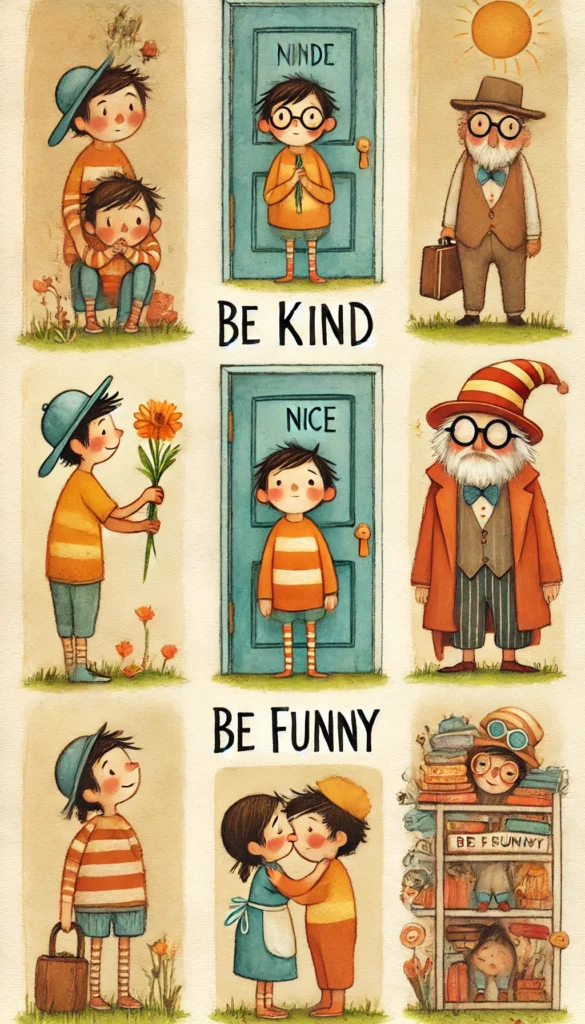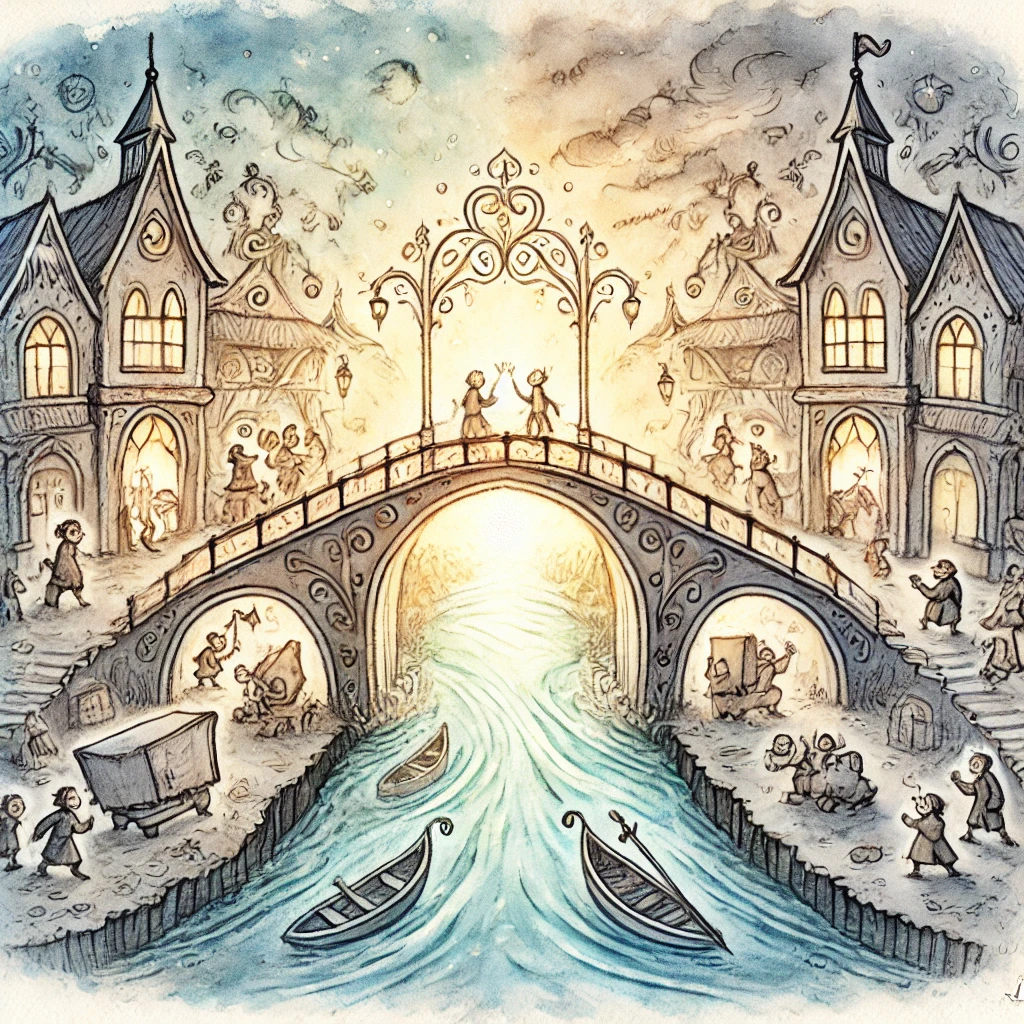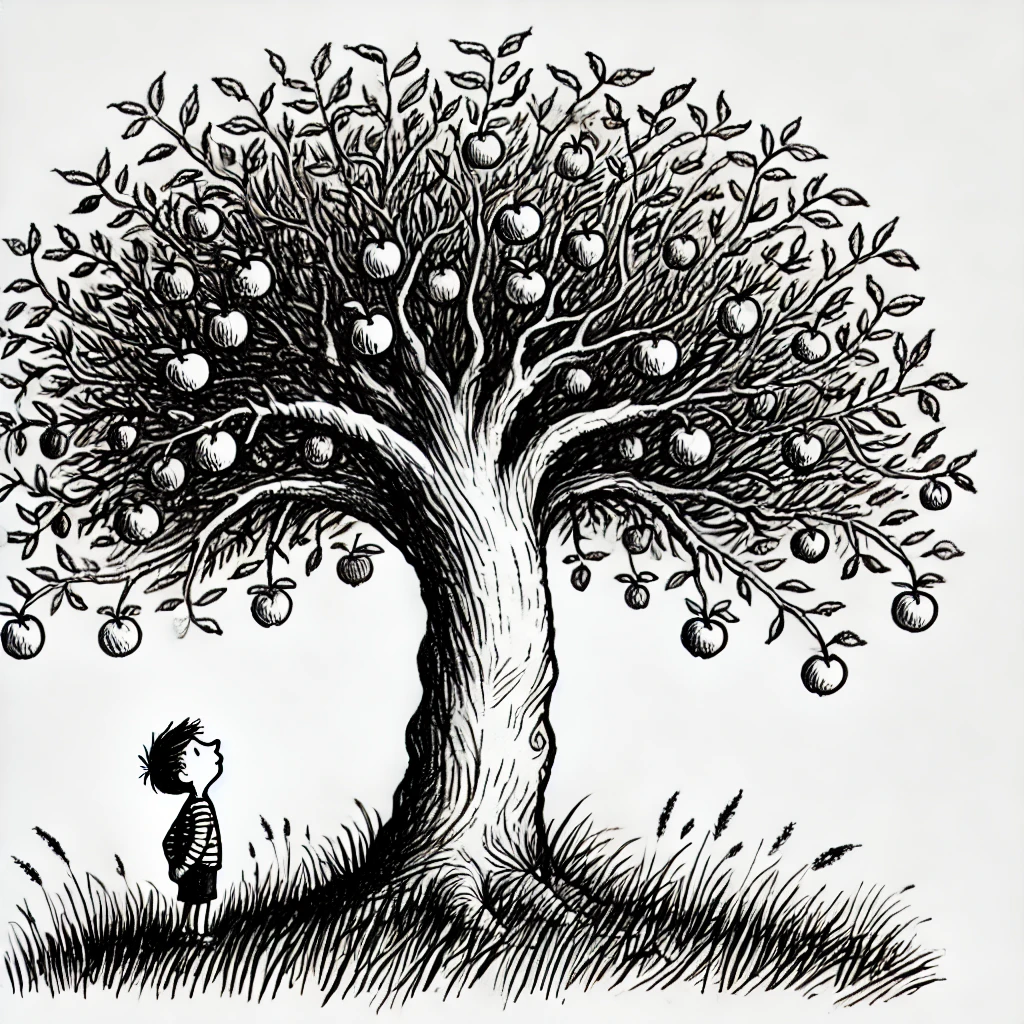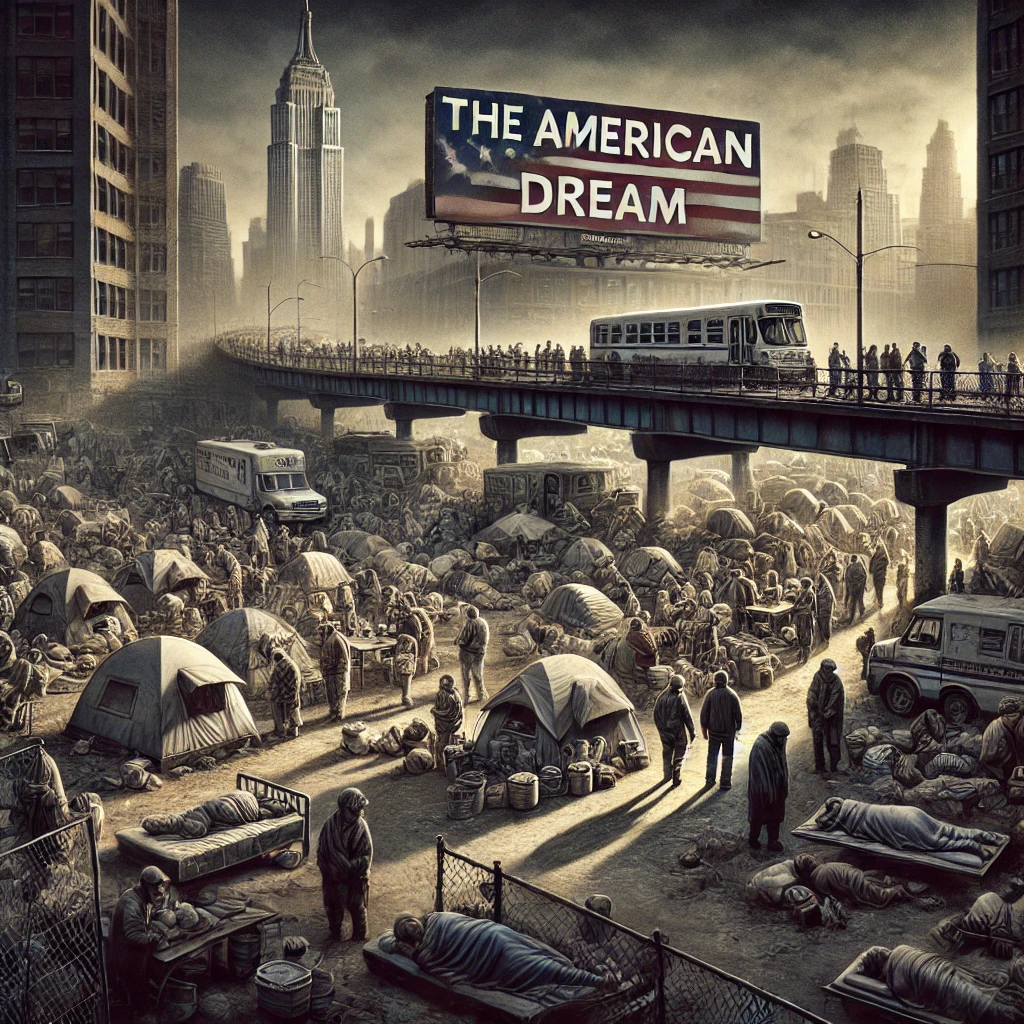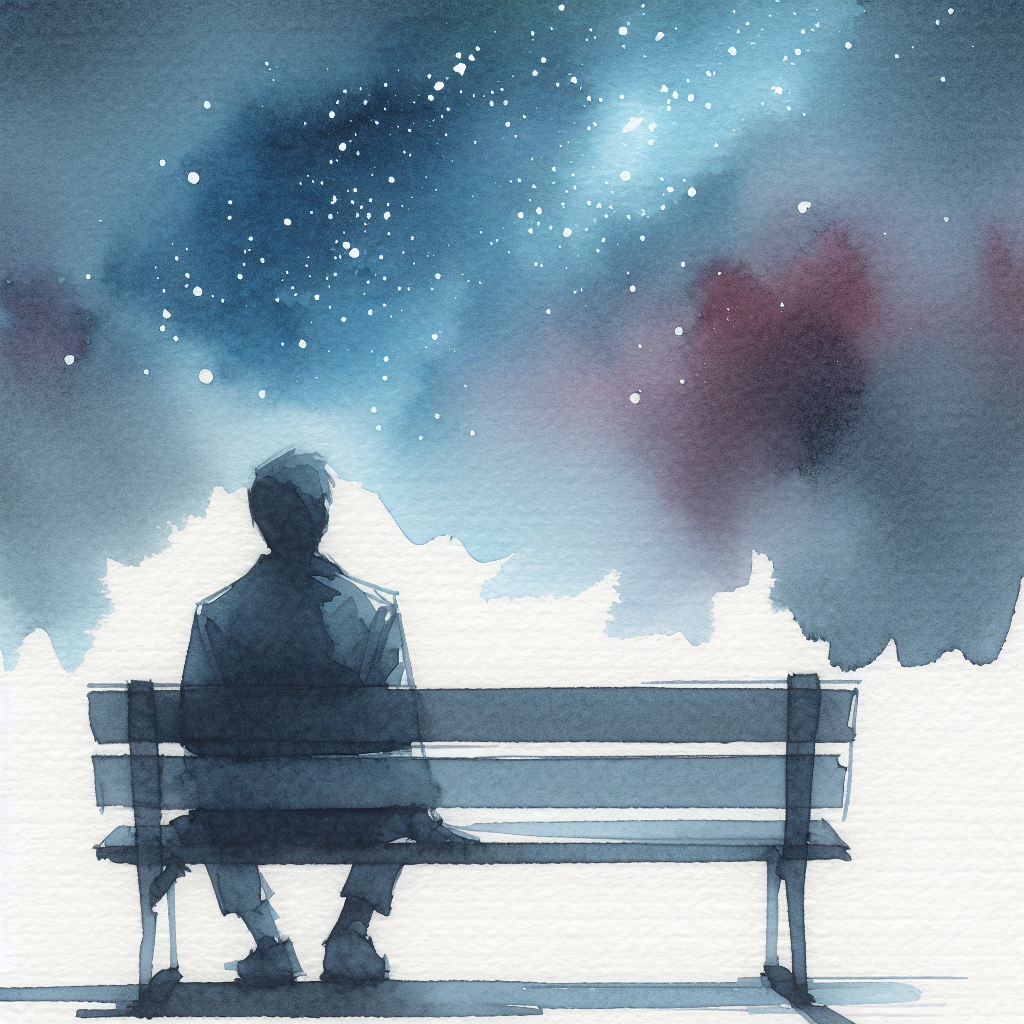a parable By Bishop Robert of the something or other
Before we start… A Note on These Parables
This is part of the Screen Door Series.
The Cult of Brighter Days is a gloriously mismatched congregation—atheists, pagans, Buddhists, progressive Christians, cosmic agnostics, and at least one guy who swears he channels divine wisdom from raccoons.
We don’t agree on God, the afterlife, or whether pineapple belongs on metaphysical pizza. What unites us isn’t belief—it’s the shared ritual of wrestling with meaning, absurdity, and each other’s typos.
These parables are personal dispatches from inside our various reality tunnels—each one shaped by a unique screen door. Some are clear. Some are stained glass. A few are barely hanging on with duct tape and spite. But all are looking out onto the same weird lawn: Abiscoridism—a philosophy of paradox, kindness, chaos, and the occasional divine fart joke.
This isn’t a manual. It’s a potluck.
Don’t look for the one true recipe—just bring something weird and honest to the table.
NOW BACK TO THE STORY…
There once was a town split by a river.
On one side stood the Bridge of Belief. On the other, the Bridge of Doubt. Both led into the heart of the town square, where people lived, worked, argued, celebrated, and occasionally screamed into the sky like they were auditioning for a Greek tragedy written by Franz Kafka on a deadline.
No one remembered when the bridges were built. Some swore the Bridge of Belief had been laid down by divine hands, possibly while the deity was drunk on ambrosia and bad intentions. Others claimed the Bridge of Doubt was carved from reason, evidence, and existential dread by a collective of sleepless philosophers with too much coffee and not enough hugs. A few muttered that it didn’t matter—what mattered was whether you used the bridge to actually show up and help carry groceries or hold someone’s hand at the clinic.
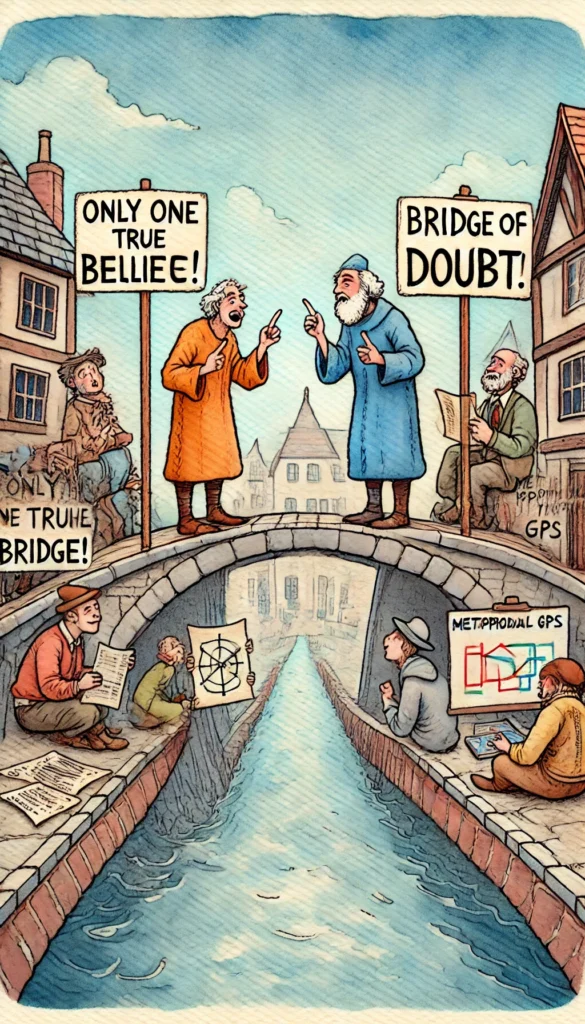
Because, you see, most people did cross into the town square.
They helped clean the roads, shared food, told stories, kissed foreheads, raised weird children, cried at funerals, danced at festivals, and rebuilt whatever crumbled—whether from time, accident, or some jackass god dropping irony bombs from Olympus.
And then there were the Bridge Sitters.
Bridge Sitters didn’t walk into town. They perched like philosophical gargoyles on the railings of their chosen bridge—arguing, proclaiming, or curating aggressively nuanced blog posts.
Some screamed that only their bridge was real, while clutching ancient scrolls and TikToks as proof.
Others insisted that crossing at all was pointless unless you had an ironclad metaphysical GPS.
A few demanded applause for thinking more deeply about bridges than everyone else, their thoughts profound and circular enough to create a black hole of smugness.
And sometimes, two Bridge Sitters would shout the exact same thing at each other using different fonts and call it a debate.
Meanwhile, the town just… kept running.
Because the truth was: the bridges were just how you got there. The square was where life happened.
No one knew what lay beyond the town. Some believed another great bridge waited there, leading into the unknowable. Others believed it was all a cosmic joke with no punchline. A few suspected it was just a 7-Eleven and an eternal Tuesday.
But everyone agreed on one thing:
If you only help people because of what might wait at the end of the road, you’re not doing it for them. You’re doing it for points in a game no one’s actually keeping score in.
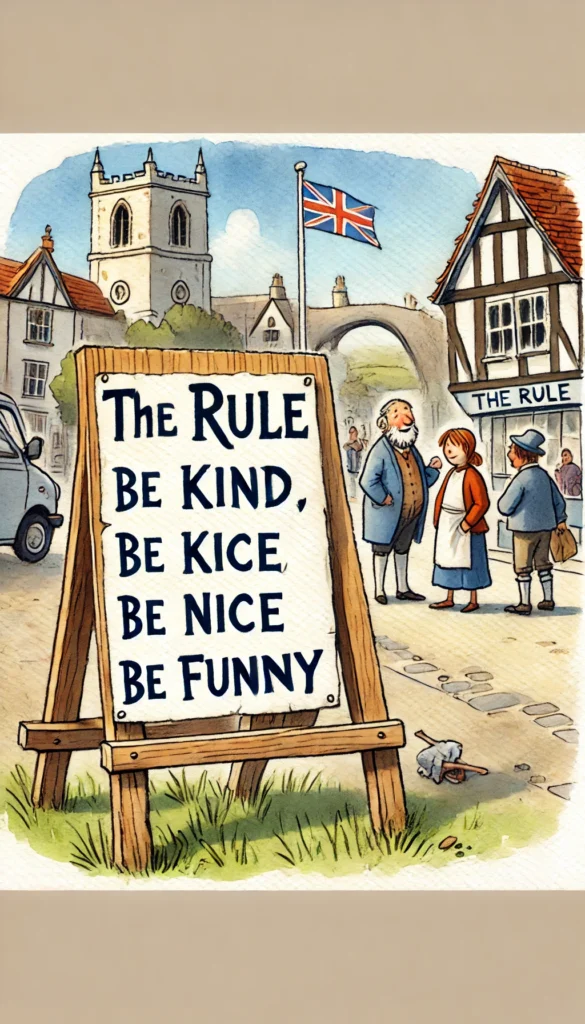
And if you refused to help at all?
Well. The townsfolk had a saying for that:
“Be kind. If you can’t, be nice.
If you can’t be nice, be funny.
If you can’t be funny, shut up.
And if you can’t even shut up… maybe don’t cross the bridge.”
Because showing up is only the beginning.
What you do when you get there is what matters.
And if you do it with a banana in your pocket, a sparkle in your eye, and a willingness to be gloriously, rebelliously absurd?
Then maybe, just maybe, you’re already one of us.
